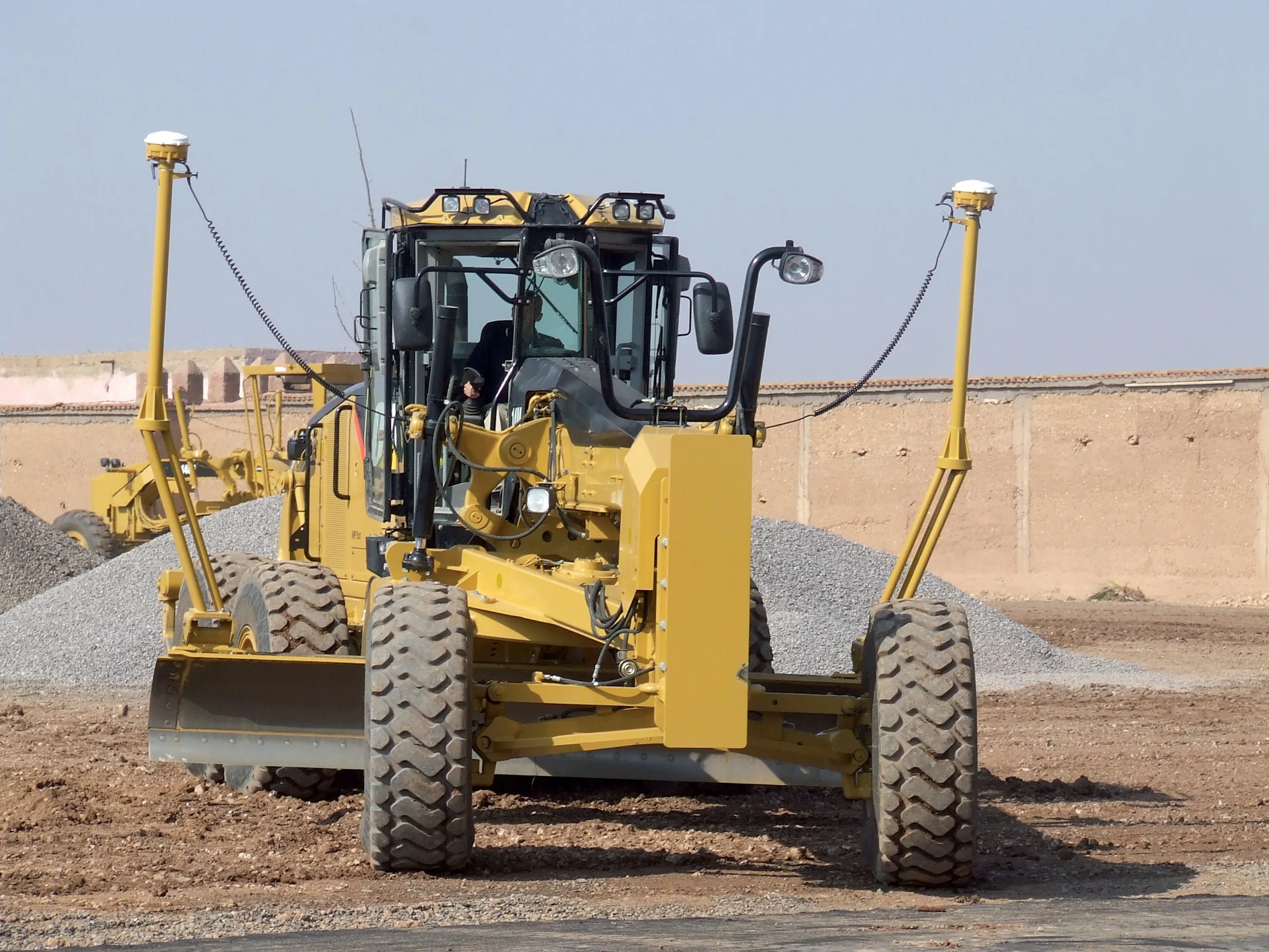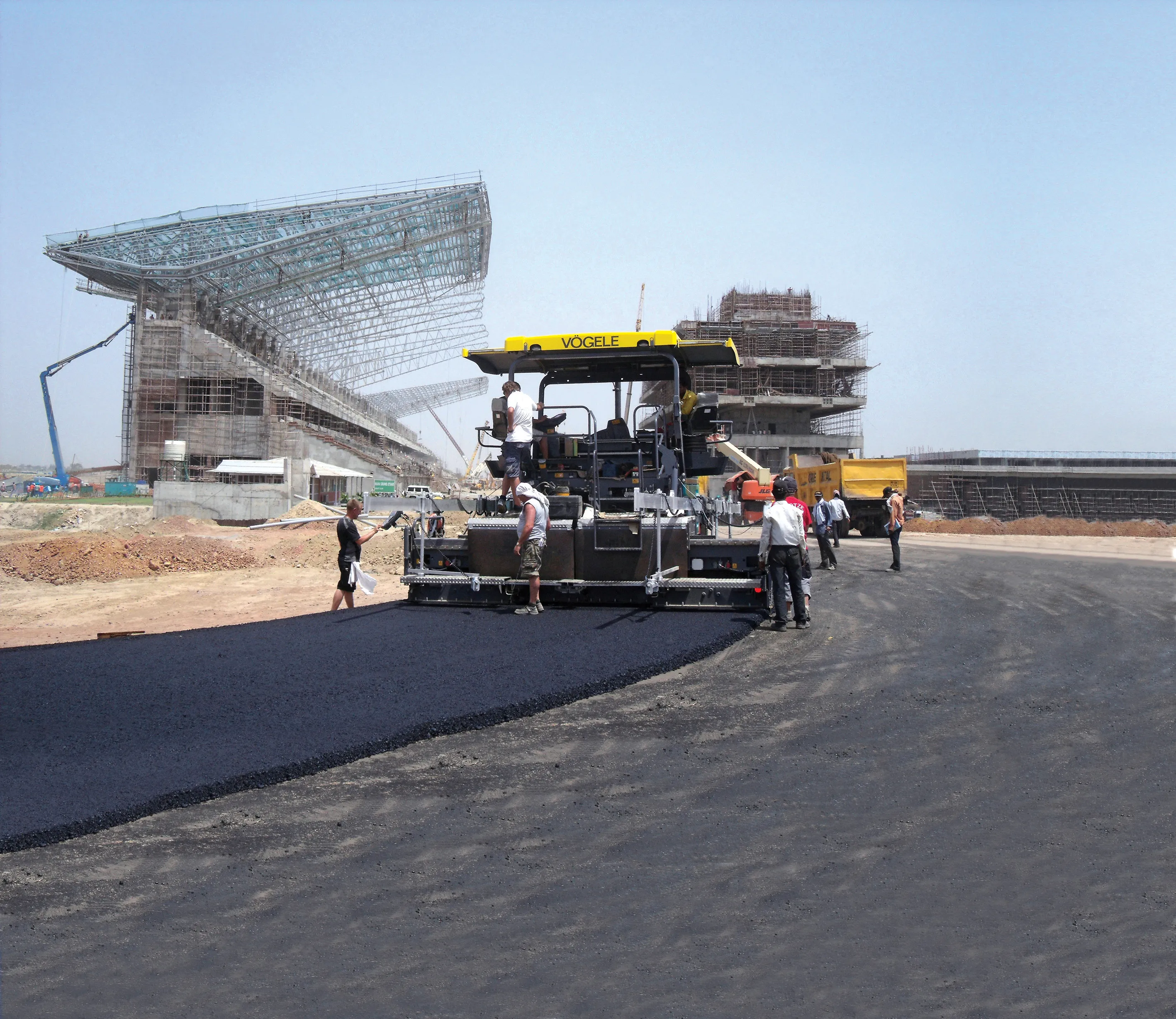Technology to assist the installation of quick laying, yet top-quality, road surfaces requiring less frequent repair, thus limiting costs and the number of construction sites, is being sought by highways authorities the world over.
The European Union devised project ASPHALT (Advanced Galileo Navigation System for Asphalt Fleet Machines) for satellite navigation and fleet management may have found just what such authorities are looking for.Within the scope of the ASPHALT research project
Initial field tests took place in late 2011 on Germany's A111 highway outside of Berlin. ASPHALT was said to not only impress the machine operators, but also construction companies and state, national and EU decision makers.
MOBA says the project results are “groundbreaking”, as while GNSS technology is being applied with increasing frequency in the area of earthwork and for monitoring tasks, satellite-based position data has very seldom been used previously for asphalt work.
ASPHALT utilises this technology to position the machinery. Trucks, paver and rollers deployed at the construction site on the A111 highway were equipped with receivers specially developed for the project. Currently, these work with GPS signals and, once available, will work with Galileo. Furthermore, with RTK (Real Time Kinematik), MOBA says the position signal can be improved down to centimetre precision in order to fulfill asphalt construction needs. By combining GNSS and inertial sensor technology, even short distances, under bridges for example, can be circumvented without satellite reception.
"With the compiled data, the entire asphalting process can be optimised and the deployment of the machines reciprocally coordinated", said MOBA project manager Marcus Watermann.
The networking of the machinery is said by MOBA to be a very promising aspect for improving the quality in road construction while, at the same time, saving time and money through quick completion of work at construction sites.
In addition to the material properties, the quality of the pavement is also particularly dependent upon the material provision, the process handling during the asphalting and control of the paver and the screed. The application and compacting temperature, and the compaction itself, are further parameters that are decisive for the properties of the road.
With ASPHALT, material movements are said to be monitored from the applying of the asphalt up to the paver. The system can be used to coordinate the transport of the asphalt to construction site and make it easier for the driver to dock the truck to the paver. This way, no disruption of the flow of material can occur and the asphalt is, according to MOBA, applied in the optimum temperature range.
Furthermore, with the MOBA-matic levelling system and Sonic-Ski, the layer thickness is regulated in such a way that a smooth, even road surface is said to be provided and unevenness prevented.
During the asphalting, the temperature of the applied material is monitored by MOBA Pave-IR. This offers substantiating documentation that the material is being applied at the correct temperature. The MOBA MCA-2000 roller system supports roller drivers when compacting by measuring the asphalt temperature and monitoring the number of the repeated passes over the pavement. Incorrect compaction is said to be prevented this way. Networking of the machines with their positional data ensures that the rollers compact the material at locations with the appropriate temperature range.
With ASPHALT, MOBA says time and money can be saved because a time buffer is no longer needed, unnecessary transport trips are avoided and no redundant material is delivered or used. All data can also be automatically recorded and documented. ASPHALT also offers large potential for saving to communities in urban and rural areas: Thanks to better road quality, maintenance costs reduce, and repairs become more seldom or are only necessary at greater time intervals. If the service life of roads is increased by just 10%, this already means an annual saving of €4.5 billion in Europe. Less maintenance need means fewer resources are consumed, which is more environmentally friendly.
MOBA claims that by using ASPHALT, the number of traffic jams on highways – 15% of which are caused by construction sites in Germany, thus making them the second most frequent cause of traffic jams (after traffic overload) – are also reduced.








